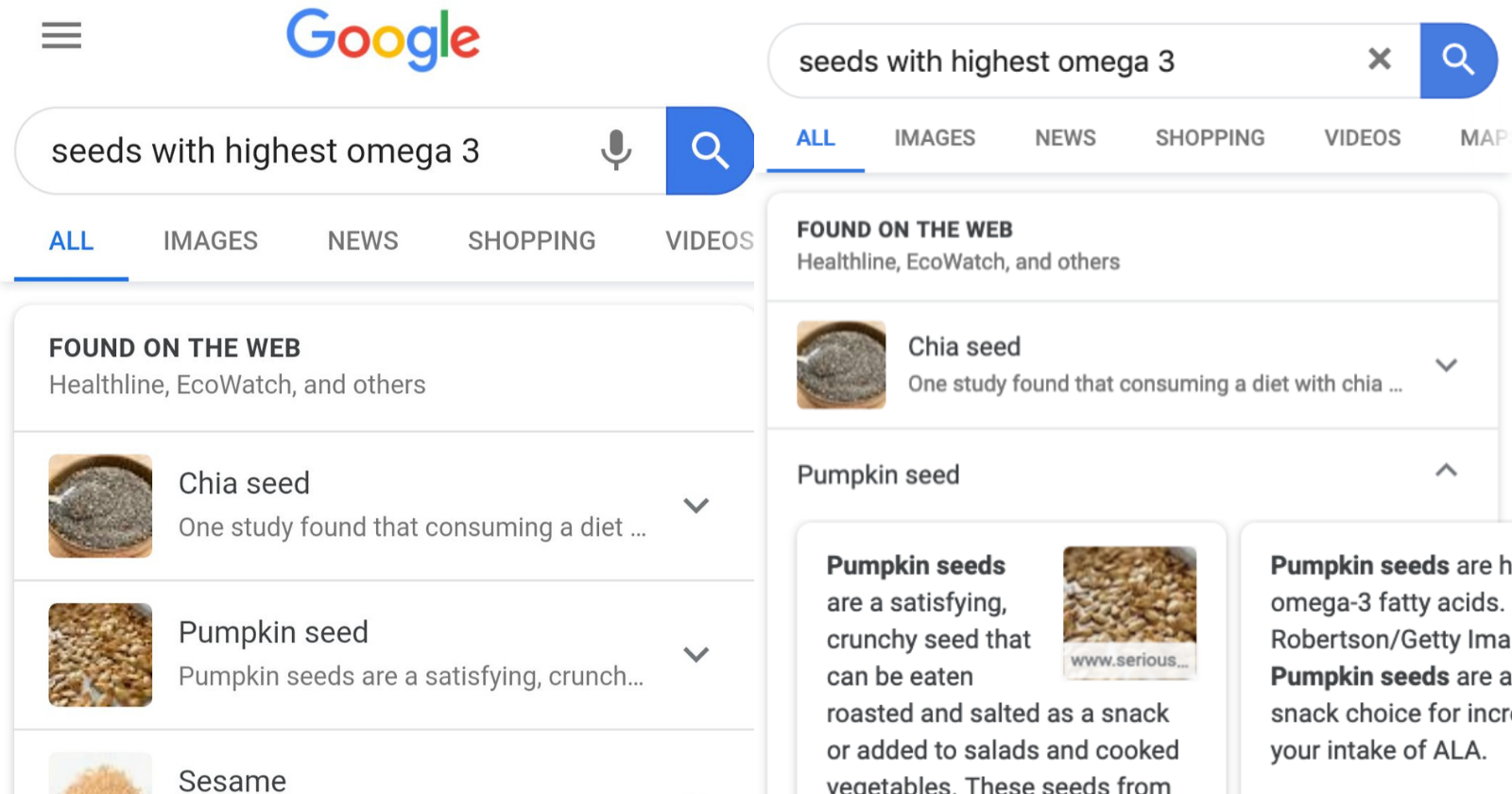Google is now displaying featured snippets that pull content from multiple publishers and combine it into one result.
The featured snippet answers questions for searchers by creating a listicle of sorts.
Here’s an example shared by Cyrus Shepard for the query “seeds with highest omega 3:”
This is an incredible search result from Google:
• Answers a fairly complex question
• Takes the copy of many 3rd party publisher to create its own independent web page
• Zero visible on-page links to the publishers who provided the dataThis is the future of Google Search pic.twitter.com/txNU2Z7HB5
— Cyrus (@CyrusShepard) February 23, 2019
As Shepard points out, the trouble with these featured snippets is they do not do the best job of directing traffic to publishers.
If a searcher gets the answer they’re looking for in the snippet, there’s no need to click through to another site.
However, if the searcher decides to expand the snippet with one of the drop down menus they’ll see not one but multiple links to other sites.
You can get a better look at how the snippet functions in this example shared by Jon Henshaw:
As things go, it seems like a good balance between showing a quick answer while also leading the user to a website if they actually want more details. I have a bigger problem with Google keeping you on their site and providing all the content versus providing a list and link out. pic.twitter.com/QE4WWnTFJj
— Jon Henshaw (@henshaw) February 24, 2019
Many still share the same concern of publishers not getting enough credit in these snippets.
The concerns prompted Google’s Danny Sullivan to respond and explain the company’s line of thinking behind these snippets.
In a series of tweet, Sullivan states:
“Since I got asked about this, a couple of things.
Most important, the future of Google Search is to continue supporting the ecosystem. We don’t thrive & users don’t thrive unless the ecosystem thrives.
Support of the ecosystem is constantly raised in meetings I’m in. It always comes up. It is a front-line concern with everyone involved with search. Any feature you see, impact on ecosystem has been considered. The hope is that overall, as Google grows, so does the ecosystem….
For everyone to grow, search has to keep evolving. While I think SEOs are fair to raise concerns about new formats, I also think they should recognize that new formats bring in new and often welcomed opportunities. Which leads back to this particular feature….”
Sullivan continues by adding that these snippets are not brand new and have been out for months.
Personally I have not encountered them and, judging by the amount of attention this is getting on Twitter, many others haven’t either.
Ultimately, these snippets are designed to let users explore and find information.
Although it’s a different way of finding information, it’s still what search has always strived to do for users.
Sullivan concludes his train of thought with a rhetorical question:
“Does search not become search if you can scan and scroll through results horizontally rather than vertically? Does search only remain search if it looks and acts like it’s 1998.”
Search has evolved since inception and this is a sign of its continued evolution.





![AI Overviews: We Reverse-Engineered Them So You Don't Have To [+ What You Need To Do Next]](https://www.searchenginejournal.com/wp-content/uploads/2025/04/sidebar1x-455.png)